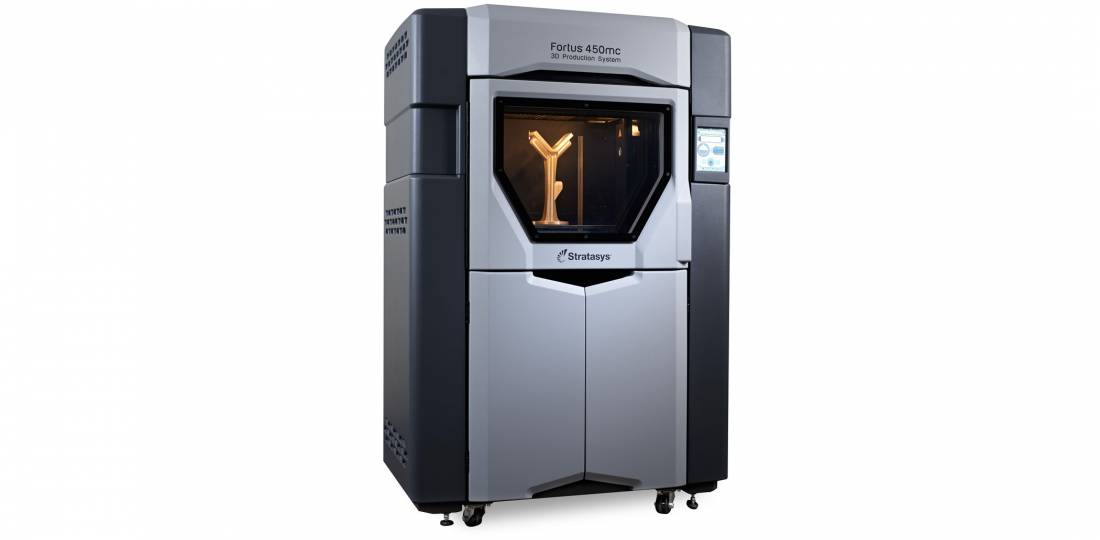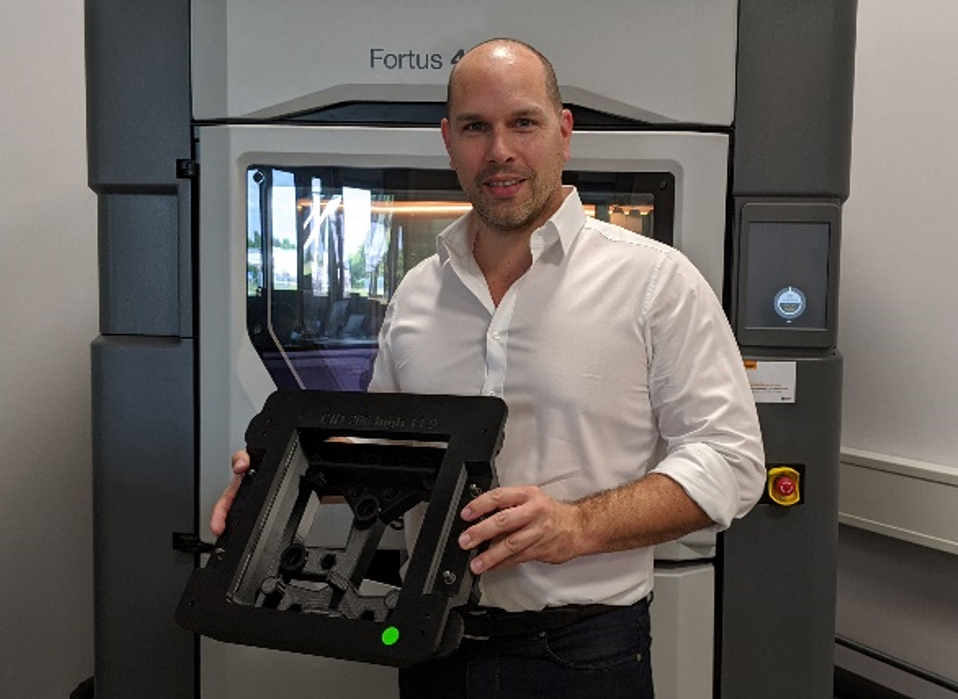Automotive manufacturer Continental AG has installed a Stratasys Fortus 450mc FDM 3D printer at its Additive Design and Manufacturing (ADaM) Competence Center in Karben, Germany.
Although famous for its tyres, Continental also produces automotive parts and provides mobility services through its Continental Engineering Services (CES) division. The company cites cost effectiveness, high throughput, and electrical safety as key factors to its manufacturing success, which it reportedly sees in Stratasys’ 3D printing technology.
Yann Rageul, Head of the Manufacturing Business Unit at Stratasys, states: “While the current global economic climate continues to present challenges, additive manufacturing is playing a key role in delivering much-needed efficiencies for businesses across the product development process. With more and more specialized materials now available, manufacturers are able to meet the exacting requirements of demanding traditional production applications and introduce more customization benefits into the process as a result.”

Additive manufacturing at the Competence Center
The ADaM Center offers customers, internal or otherwise, a wide variety of additive samples, mechanical parts, and series components made of both metals and thermoplastics. The newly installed Fortus 450mc will be used to manufacture functional prototypes, end use parts, and even jigs and fixtures for Continental’s own production line.
The company places great value on production speed and part quality, stating that the Fortus can “accelerate processes and ensure continuous automotive production”. Components can be printed in a matter of hours, giving the team a great deal of flexibility and efficiency potential, especially when referring to replacement parts that may be difficult to source.
Stefan Kammann, Head of Samples and Mechanical Solutions at CES, explains: “With the Fortus 450mc, we’re able to quickly manufacture replacement production tools and parts in high-performance thermoplastics that perform in the same way we would expect of a traditionally manufactured equivalent. Importantly, this avoids lengthy manufacturing times associated with traditionally produced tools, and bypasses costly machine downtime associated with the wait for replacement parts.”
Stratasys’ ESD-compliant materials
Many of Continental’s 3D printed parts will, at some point, come into contact with electronic components on the manufacturing shop floor, meaning they will need static dissipative properties to prevent electrostatic discharges (ESD). If discharges occur, they can often damage products or even start fires in the worst cases. With this in mind, the company has opted for Stratasys’ ESD-compliant ABS-ESD7 polymer for some of its tooling applications as it offers the necessary durability and stability.
Kammann concludes: “We are able to 3D print the gluing jig for the automotive display assembly with Stratasys’ ABS-ESD7 material, which means we have a fast, safe, and ESD-compliant solution in-house that is customizable. This not only ensures continuous fast production, but also demonstrates how we look for the best technology to solve the manufacturing challenges with which we are faced. In fact, the Fortus is the only 3D printer we have that is capable of creating ESD-compliant production parts in very little time.”

The automotive sector, particularly with performance vehicles, has seen a sharp rise in additive manufacturing adoption in recent years. Porsche has previously worked with machine tool producer TRUMPF and automotive parts company MAHLE to 3D print pistons for the engine of its flagship 911 supercar. Additive manufacturing has not only reduced each piston’s weight by 10%, but has also added 30 BHP to the engine’s horsepower.
Elsewhere, automotive start-up Czinger is set to launch its first 3D printed hypercar, the 21C, in 2021. The mostly hand-assembled vehicle will begin at an eye-watering $1.7M and will be fully street legal in the US. Many of the core components are to be printed with the company’s proprietary aluminum alloys, while the exhaust system will be printed in the notoriously heat-resistant inconel.
The 4th annual 3D Printing Industry Awards are coming up in November 2020 and we need a trophy. To be in with a chance of winning a brand new Craftbot Flow IDEX XL 3D printer, enter the MyMiniFactory trophy design competition here. We’re happy to accept submissions until the 30th of September 2020.
Subscribe to the 3D Printing Industry newsletter for the latest news in additive manufacturing. You can also stay connected by following us on Twitter and liking us on Facebook.
Looking for a career in additive manufacturing? Visit 3D Printing Jobs for a selection of roles in the industry.
Featured image shows Stefan Kammann and an ESD-compliant gluing jig 3D Printed in Stratasys’ ABS-ESD7 material. Photo via Stratasys.
